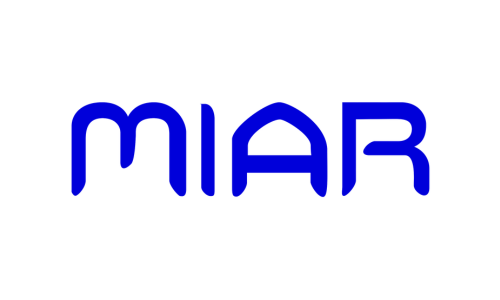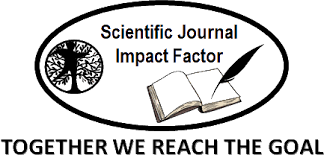DISCUSSIONS ON THE POEMS CREATED ON SUJET
Abstract
The work is notable for its features. Especially when thinking about a plot, it can also be defined by the skill of the writer and the writer. This article also talks about the peculiarities of the plot in the poetry, where it gives an overview of how the elements of the plot come together. In general, in Uzbek poetry, especially in the works of poets such as Usman Azim, Iqbol Mirzo, Fakhriyor and Abduvali Kutbiddin, this feature was described in a specific style and in this regard influenced the individual style of the poets. Basically, it is analyzed through examples that the elements of the plot are not always the same in poetry, and that several of these elements may occur.
Keywords: plot, story, element, poem, poet, style, lyric hero, lyrical experience.
References
Boboev, T. (2002). Fundamentals of Literature. Tashkent: Uzbekistan. p. 108.
Theory literatury. Basic problems in the history of overview // types and genre literature. M., 1964, p. 30
Introduction to literature study. M., 1976, p. 217–218.
Pospelov, N.G. (1976). Lyrics among literary types. M., p. 62-177.
Literary types and genres. Part 2. Tashkent: Science, 1992, p. 30.
Shukurov, N. (1973). Styles and genres. Tashkent: Publishing house of Literature and Art named after Gafur Gulom. P.134.
Mirzo, I. (2007). I'll sing you. Tashkent: Eastern, p.170.
Kamal, J. (1986). Lyrical poetry. Tashkent: Science, p.58.
Sultan, I. (2005). Literature theory. Tashkent: Teacher, p.108.
Silman, T. (1977). As it turns out. L., p.6.
Aristotle. (1980). Poetics. Tashkent: Literature and Art Publishing, p.49.
Yakubov, H. (1983). Selected works. Two volumes. The first volume. Tashkent, p.94.
Tuychiev, U. (1992). Lyrical Type Marks // Literary Types and Genres. Volume III. Volume 2. Tashkent: “Science”, p.135.
Hasanov, Sh. (2011). The composition and nature of the poem. Samarkand, SamSU Bulletin, p.106.
Kuronov, D. (2007). Introduction to Literary Studies. Tashkent: Science, p.100.
Literary types and genres. Volume 2 Lyrics. Tashkent: Science, 1992, p.14.
Khalizev, V.E. (1999). Theory Literatury. M.: Vysshaya School, pp.138-139.
Sultan, I. (2005). Literature. Tashkent: Instructor, p.157.
Azim, U. (2010). Fonus. Tashkent: East, p.11.
The Encyclopedia of Literature. T.7. M., 1971, p.310.
Qutbiddin, A. (2006). Far Away. Tashkent: A New Generation, p.36.
Ayolgu, F. (2000). Tashkent: East, p.42.
Literary types and genres. Volume 2 Lyrics. Tashkent: Science, 1992, p.14.
Timofeev, L.I. (1971). Foundation of literary theory. M., p.356.
Hegel. (1971). Aesthetics. I 4-x t. M.: Iskusstva, p.460.
Fusuli. (2009). You loved your heart. Tashkent: East, p.34.
Yuldashev, Q. (2018). The word’s spark. Tashkent: Gafur Gulom Publishing House, pp. 82-84.
Usman, A. (2007). Missing. Tashkent: The National Encyclopedia of Uzbekistan, p. 139.
Usman, A. (1995). Selected works. Tashkent: Eastern, p.201.
Usman, A. (1991). The agony of awakening. Tashkent: Literature and Art Publishing House, p.107.
Downloads
Published
How to Cite
Issue
Section
License
Declaration/Copyright transfer:
1. In consideration of the undertaking set out in paragraph 2, and upon acceptance by ANGLISTICUM for publication of the manuscript in the Journal, I/We hereby assign and transfer publication rights to ANGLISTICUM, whereas I/We retain the copyright for the manuscript. This assignment provides ANGLISTICUM the sole right and responsibility to publish the manuscript in its printed and online version, and/or in other media formats.
2. In consideration of this assignment, ANGLISTICUM hereby undertakes to prepare and publish the manuscript in the Journal, subject only to its right to refuse publication if there is a breach of the Author’s warranty in paragraph 4 or if there are other reasonable grounds.
3. Editors and the editorial board of ANGLISTICUM are empowered to make such editorial changes as may be necessary to make the Manuscript suitable for publication.
4. I/We hereby acknowledge that: (a) The manuscript submitted is an original work and that I/We participated in the work substantively and thus I/We hereby are prepared to take public responsibility for the work; (b) I/We hereby have seen and approved the manuscript as submitted and that the manuscript has not either been published, submitted or considered for publication elsewhere; (c) The text, illustration, and any other materials included in the manuscript do not infringe upon any existing copyright or other rights of anyone.
5. I/We hereby indemnify ANGLISTICUM and the respective Editors of the Journal as mentioned in paragraph 3, and hold them harmless from any loss, expense or damage occasioned by a claim or suit by a third party for copyright infringement, or any suit arising out of any breach of the foregoing warranties as a result of publication of the manuscript.













